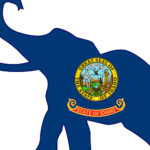The Washington Education Association (WEA) relies on the same kind of coercion as other public-sector unions to fuel the engine of its power – power used to advance the causes of the Left.
As a condition of teaching children in the education monopoly, teachers are required to pay more than $1,000 each year mostly to the union enterprise in Washington, D.C., and Federal Way.
Most teachers are not excited about funding political or left-wing ideological issues and candidates. Many of the efforts of the Washington Education Association limit professional opportunities for educators and stifle the creativity educators dreamed about when they started out.
Teachers often resent being pressured to go to war against local elected leaders because the union business model requires it. Young teachers are not well served by the union that historically caters to the highest-paid teachers, often at the expense of younger teachers.
Nonetheless, the money to fund the agenda and politics of the WEA and the NEA is siphoned directly from the wages of educators who may just wish to be left alone to teach.
What too few teachers realize is that the court has already granted their right to pay only for the core union services, like negotiations, and to demand a refund of the excessive charges for ideological agendas and politics.
Supreme Court decisions have established that unions are not allowed to charge teachers for “the support of an ideological cause (they) may oppose as a condition of holding a job as a public school teacher” (Abood v. Detroit Board of Education 431 U.S. 209 (1977)).
To accommodate this right, any teacher may resign from full union membership and remain a nonunion member of the bargaining unit paying only the workplace representation fee, which is less than full union membership dues.
As the Freedom Foundation has learned through its dealings and communications with thousands of union workers, few are aware of these rights. Government employers and unions typically make little effort to inform workers of their options, and unions frequently enact arbitrary regulations that make it difficult for workers who do know their rights to exercise them.
The WEA, for example, specifies that teachers who’d like a rebate on the political portion of their dues can only ask for ask for it each year during a small window of time – by Jan. 4 this coming year.
The result is that most teachers have no idea that roughly a third of their dues are actually optional.
Think that’s an exaggeration? Consider the response from one of the first teachers we contacted:
“When I became a teacher 15 years ago, I did not want to become a member of the union. Of course I had to pay almost the full amount, but I have never gotten a refund. How do I get this?”
In other words, she’s been paying full dues for 15 years only because no one told her she had a choice.
So we are telling teachers the rest of the story.
The Freedom Foundation has launched an educational campaign to inform Washington’s 80,000 public school educators of their right to cease supporting the WEA’s political and nonessential expenditures. On average, teachers will receive $250 to $350 in dues back from the WEA, but they must ask for the rebate by Jan. 4, 2016.
Those who wish to learn more should refer to ChoiceForTeachers.com, a Freedom Foundation website designed to give teachers all the information they need to exercise their constitutional rights including a “fill in the blanks” letter to collect the refund.








